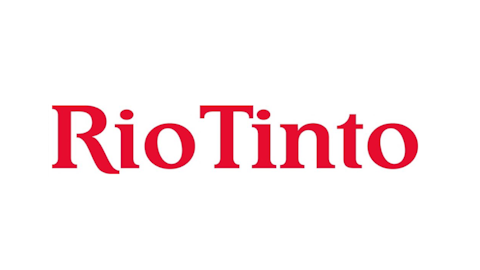
Early this year, Deutsche Bank AG (USA) (NYSE:DB) reported a net loss of nearly $3 billion for its fourth quarter. In a press conference held on the same day, the bank attributed a large part of the loss to “significant litigation charges” relating to “developments in regulatory investigations and adverse court rulings.”
And just this week, the bank had to issue new stock to help it raise about $3.7 billion to “strengthen its capital structure,” diluting shareholders in the process.
Without more transparency about why the bank’s misconduct occurred and how the company is addressing it, I believe shareholders will face continuing risks to their investment.
Big scandals
Germany’s biggest lender has been no stranger to scandal over the past few years. Here are some “highlights.”
Deutsche Bank AG (USA) (NYSE:DB) is under investigation for allegedly colluding to manipulate LIBOR (London Interbank Offered Rate) — a short-term lending rate that establishes borrowing rates countrywide and affects short-term interest rates globally. Other banks accused of the same crime include Barclays PLC (ADR) (NYSE:BCS) and UBS AG (ADR) (NYSE:UBS), and those two banks together had to cough up nearly $2 billion in settlements.
The German bank was allegedly prompted by hedge fund manager John Paulson to sell “junk” CDOs without disclosing Paulson’s intent to short them. In 2010, Goldman Sachs Group, Inc. (NYSE:GS) was accused of similar conflicts of interest surrounding its Abacus CDOs, which also involved Paulson’s company. As a result, Goldman Sachs Group, Inc. (NYSE:GS) was pushed to shell out $550 million to settle charges.
Former employees accused the bank of hiding $12 billion in losses during the financial crisis — an accusation that Deutsche Bank has insisted is without merit.
In 2010, the bank admitted to criminal wrongdoing and agreed to pay out $553.6 million to settle charges that it marketed fraudulent tax shelters that allegedly cost the U.S. more than $230 million in lost taxes and created more than $7 billion in illegal tax deductions and benefits.
These scandals have dealt a major blow to the company in litigation costs, lost executive time in dealing with the investigations and lawsuits, and reputational damages.
In fact, just this March, Deutsche Bank AG (USA) (NYSE:DB) had to revise the numbers announced during its January 31 earnings call and reduce its 2012 income before taxes from about $1.8 billion to about $1 billion in order to be able to set aside close to $800 million for litigation costs.
Positive steps
Even if they’ve come far too late, I believe Deutsche Bank has taken some positive steps toward reducing risk of illegal behavior, including:
Eliminating multi-year bonus guarantees
Requiring all employees to take business conduct and ethics training
Tying compliance violations to bonus and promotion decisions
However, as the bank affirms, “Cultural change is much broader than compensation or controls.” To address the broader need for cultural change, bank representatives claim that the bank, “laid the foundations for deep behavioral change across the organization.”
But the bank’s cryptic references to “culture change” are not followed up by any discussion of specific, concrete reforms. And its lack of candor about how it is addressing key problems continues to worry me.
Absence of candor
When a company’s management fails to address investors with candor, I fear that in addition to potentially hiding risks from investors, they may also be turning a blind eye to risks they are capable of eliminating. As investing genius Warren Buffet says, “The CEO who misleads others in public may eventually mislead himself in private.”
Here are a couple of key areas in which I fear Deutsche Bank AG (USA) (NYSE:DB) lacks candor.
1. Cryptic promises of culture change
In its annual press conference, the company said it “laid the foundations for deep behavioral change across the organization.”
However, it failed to specify what was wrong with its culture before or to elaborate on concrete solutions. I agree with Boston University law professor Cornelius Hurley’s sentiment that, “Anytime you make a statement like ‘We’re going to change the culture,’ without saying what’s wrong with the old one, I am on guard.”
In other words, discussions of culture change without transparency about where problems existed before and how they are being addressed strike me as empty PR for companies that know they’ve garnered a poor reputation. It’s as if Deutsche Bank AG (USA) (NYSE:DB) is implying: “We’re turning over a new leaf, but it’s just a fig leaf.”
2. Disregarding the intent behind stakeholder demands
Here’s another area where I think the company lacked candor. It claims it responded to client, regulator, and investor demands to strengthen its capital base by raising its Core Tier 1 ratio from below 6% at the end of 2011 to 8% by the end of 2012 under the Basel III rules.
This is all well and good, but what worries me is that management failed to affirm the intent behind the push for a stronger capital base, which I believe is to shield the bank from unmanageable losses by reducing its leverage and proportion of risky investments. However, it appears that Deutsche Bank may not have actually done much to address these issues. Instead, its claims about how it achieved the 8% suggest that the company used sophisticated financial engineering to help make its capital ratio look better.
The Frankfurt-based company clarified that it achieved its higher ratio by reducing its risk-weighted assets by around $105 billion “through a combination of portfolio optimization, de-risking activities, and enhancing our risk models and processes.” The first and last factors that worry me most, as they suggest to me that part of Deutsche Bank’s capital ratio improvements resulted from the use of financial alchemy and risk model adjustments that help them classify existing assets as less risky rather than making fundamental improvements to its risk profile.
I don’t believe this meets the spirit behind stakeholders’ requests to improve Deutsche Bank’s capital base, as the bank implied it did when it claimed, “We listened, and we delivered.”
The Foolish takeaway
One of my favorite nuggets of wisdom from the Oracle of Omaha, Warren Buffett, is this: “In looking for people to hire, you look for three qualities: integrity, intelligence, and energy. And if they don’t have the first, the other two will kill you.”
I believe this wisdom should also guide our investments, especially in banking, where trust is paramount. If a company’s management fails to show candor — especially in times of crisis — then it may signal trouble down the road in the form of hidden risks that remain unresolved.
And until Deutsche Bank AG (USA) (NYSE:DB) offers more transparency on how it intends to address its culture problem, I fear rats may still be lurking in the dark.
The article Shareholders Still Pay for Deutsche Bank’s Scandals originally appeared on Fool.com and is written by M. Joy, Hayes.
Motley Fool contributor M. Joy Hayes, Ph.D. is the Principal at ethics consulting firm Courageous Ethics. She has no position in any stocks mentioned. Follow @JoyofEthics on Twitter. The Motley Fool recommends Goldman Sachs.
Copyright © 1995 – 2013 The Motley Fool, LLC. All rights reserved. The Motley Fool has a disclosure policy.


